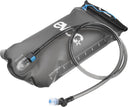Versandkostenfrei ab 100€
Regular price
43,90 €
inkl. MwSt. | zzgl. Versandkosten
Lieferzeit: 2-4 Werktage
Verkäufer: A.O. Bindhammer e.K.
Kurzbeschreibung
The robust Hydration Bladder 2 by EVOC for the backpack is made without harmful BPA and PVC.
Geeignet für
 Bergsteigen/Trekking
Bergsteigen/Trekking
 Radsport
Radsport

Evoc HYDRATION BLADDER 2
Regular price
43,90 €

Das könnte Dir auch gefallen
Ähnliche Produkte
Mach weiter, wo Du aufgehört hast
